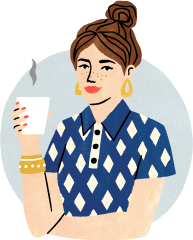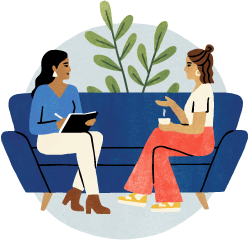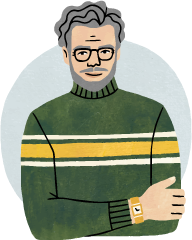Support Groups in Afton, WY
Evidenced based: MRT is a cognitive behavioral group that was originally developed for criminal populations. However, it is very effective for any who have trend or pattern of making the same mistakes over and over. People who are 'stuck' in thinking and acting in ways that bring negative outcomes will benefit from MRT.

Hosted by Andrew Parker
Licensed Professional Counselor, LPC
Verified Verified
Group meets in Afton, WY 83110
My ideal client is one who is invested in improvement and change. Most people really want to do and feel better. As a generalist with 30 years of experience, I enjoy the diversity of problems and issues I get to help people with. Because my treatments are principle based, they apply to a broad range of needs. I provide practical solutions to real problems.
Evidence based: DBT skills groups focus on the development of adaptive skills in for key areas. Mindfulness and Distress Tolerance skills help clients in learning to accept and deal with things in life that they don't like, but can't change. Emotion regulation and Interpersonal Effectiveness skills help in managing emotions and healthily meeting one's needs in relationships.

Hosted by Andrew Parker
Licensed Professional Counselor, LPC
Verified Verified
Group meets in Afton, WY 83110
My ideal client is one who is invested in improvement and change. Most people really want to do and feel better. As a generalist with 30 years of experience, I enjoy the diversity of problems and issues I get to help people with. Because my treatments are principle based, they apply to a broad range of needs. I provide practical solutions to real problems.
Evidence based: Spiritual Self-Schema (3S) therapy helps clients change how they perceive themselves and the world around them, as well as the meaning they attached. Based on principles of Buddhism, it is compatible to the religious, agnostic or atheist. 3S explores the things client does to contribute to his or her own suffering and provides practice skills to alleviate suffering. It is helpful for those who are struggling with negative or damaging perceptions of self or life in general; those seeking more acceptance and peace in their lives; or those who find that while life is good, they seem to find something lacking.

Hosted by Andrew Parker
Licensed Professional Counselor, LPC
Verified Verified
Group meets in Afton, WY 83110
My ideal client is one who is invested in improvement and change. Most people really want to do and feel better. As a generalist with 30 years of experience, I enjoy the diversity of problems and issues I get to help people with. Because my treatments are principle based, they apply to a broad range of needs. I provide practical solutions to real problems.
See more therapy options for Afton
FAQs - About Group Therapy and Support Groups
How can I find a support group in Afton?
Search for nearby support groups by inputting your city, zip code, or the name of the group into the search bar. From there, you can filter to find a group that suits your needs, whether you are looking for support for a teenager, a group that focuses on a specific issue, such as depression, or a particular program type, such as one geared toward developing social skills. To navigate between locations within the same country, enter a new city or zip code into the search bar.
How does group therapy work?
Therapy groups are led by one or more therapists and serve to help people process their experiences and learn from others who understand their challenges firsthand. They can be based on a specific issue, such as addiction, grief, physical illnesses, parenting, and caregiving. They can involve a specific type of program or therapy, such as a social skills group or CBT group. They can also be specific to a particular population or community, such as teens or LGBTQ.
Support groups, like Alcoholics Anonymous, also focus on a specific issue, but are typically led by members with lived experiences and are less structured than therapy groups. Most therapy groups will meet for a fixed length of time with a consistent group of members, while many support groups meet for an indefinite period of time with members coming and going.
Support groups, like Alcoholics Anonymous, also focus on a specific issue, but are typically led by members with lived experiences and are less structured than therapy groups. Most therapy groups will meet for a fixed length of time with a consistent group of members, while many support groups meet for an indefinite period of time with members coming and going.
What are the benefits of group therapy?
Support groups help connect people with shared challenges or physical and mental health conditions. In a group setting, participants can receive support and feedback from peers and can acquire new skills, strategies and perspectives by listening to one another. Discussing your experience with someone who also has a cancer diagnosis, or whose son also struggles with addiction, for example, can help you feel less alone, reduce distress, find empathy and connection, and learn practical or medical information that has helped others. Group therapy can also be a more affordable option than individual therapy and just as effective.
Is group therapy as effective as individual therapy?
Support groups can be deeply valuable for both emotional support and/or treatment outcomes. It’s difficult to make a blanket statement on efficacy due to the many different types of support groups and conditions treated, but group therapy has been found to be just as effective as individual therapy in establishing long-term abstinence for conditions such as substance abuse, addiction and alcohol abuse.
How much does group therapy cost?
Group counseling is typically less expensive than individual counseling, with each session costing on average between $60 to $75. Meanwhile, individual therapy sessions can run anywhere from $100 to $200 and up, even after insurance. It is possible to find low-cost group therapy options and many therapists offer group sessions free of charge.
Does insurance cover group therapy?
As with individual therapy, many insurance companies do offer coverage for group therapy sessions. However, the coverage varies based on your insurance plan details and whether you choose an in-network or out-of-network mental healthcare provider. Individuals are encouraged to check with their insurance providers to verify coverage.
How long does group therapy last?
The length of a support group session is often one hour but can fall anywhere between 45 minutes and two hours. The amount of time that people remain in a support group varies based on their specific needs and goals and the type of therapy. Some individuals may seek a shorter-term group, such as a bereavement group, that may last between six and 20 weeks. Some may seek a longer-term group that lasts for a year or indefinitely.
What are the limitations of support groups?
Support groups have many benefits, but there are a few limitations as well. Support groups do not constitute formal therapeutic or medical treatment, and are not run by licensed mental health professionals, so some people may opt for group therapy or individual therapy instead. Additionally, support groups can depend on the other participants, so a disruptive individual has the potential to mar the group dynamic, and the anecdotal information shared may sometimes be unhelpful or inaccurate. Because it is a group setting, confidentiality can be more difficult to guard and participants receive less personalized attention than they would in an individual therapy session.


